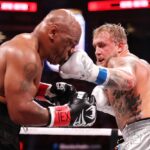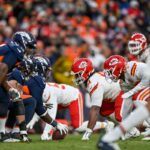The Kiszla effect: eerily ironic or genuinely influencial?
“Nobody involved in professional sports at any level would ever confess to being influenced by the ramblings of a cynical newspaper columnist.”
Read More …
Nobody involved in professional sports at any level would ever confess to being influenced by the ramblings of a cynical newspaper columnist. Most deny that they pay any heed whatsoever to the notions conveyed in the broadsheets or in any other form of media. Coaches, players and front office types insist that they operate in a bubble, free from the sway of those who would seek to advise them. They don’t make decisions based on the leanings of their fans and they certainly don’t seek the council of muckrakers. At times, though, it seems like decision makers are paying attention to the notions expressed from the peanut gallery, no matter how vigorously they may deny it.
In Denver, Colorado the man most inclined toward ruffling the feathers of the folks who operate our local sports teams is columnist Mark Kiszla of the Denver Post. Kiszla’s sometimes acidic observations spark significant amounts of conversation and draw the ire of those targeted in his pieces. He’s unabashedly critical at times, and his long tenure as a mouthpiece at the paper means that he has an historical understanding of the history of Denver sports. There’s not much Mark hasn’t seen. He’s never bashful about telling it like it is – or how he sees it, through the lens of a writer who has seen a thousand personalities pass through the local scene. He’s somebody who’s not universally loved but is grudgingly respected even by those he criticizes.
But do they actually listen to him?
Nuggets coach George Karl, who is probably not Mark Kiszla’s biggest fan, has been on the receiving end of a number of his diatribes. Most famously, Kiszla write during the Nuggets’ 2012 / 2013 season that Karl had “the cushiest job In the NBA” in a column that ran in February of this year. Kiszla said in the second paragraph of that piece: “Karl plops down on the bench shortly before tipoff and watches the game from the best seat in the house, doing so little for two hours he might as well order a pizza.”
Oddly, in the several games that followed the publication of the now infamous “pizza article” Karl’s reputed mild-mannered demeanor on the bench gave way to a more fiery and animated coaching style. The Nuggets won their next twelve games in a row as Karl leaped from his seat to chide referees, shout commands at his squad and slap his players on their butts. There was a distinctive and noticeable difference in the way Karl coached following Kiszla’s biting column. Naturally, Karl would vigorously deny having been affected the things that Kiszla said, but it very much seemed as though the column had served as a wakeup call of sorts for the ball coach. Call it the “Kizsla effect”.
Fans of the Colorado Rockies might very well have seen the Kiszla effect in action again yesterday evening.
In Friday’s “Lunch Special” column, which Kiszla penned for the Post’s web site, the columnist called for the benching of 39 year-old veteran first baseman Todd Helton, the greatest Rocky of all time. Kiszla asserted: “(Walt) Weiss doesn’t have the heart to tell Helton, so somebody must say: It’s time to take a seat on the bench, big fella.” Kiszla went on to say: “Helton has earned our respect. He also has earned a seat on the bench. If his hitting stroke returns while he serves as a spot starter, pinch-hitter and defensive replacement, then Weiss can always reconsider giving Helton more playing time.”
Did Walt Weiss read Kiszla’s column? Did Helton? It’s tough to say, but, when Friday’s lineup card was revealed Todd Helton wasn’t on it. He was held in reserve as a pinch-hitter and defensive replacement, precisely as the scribe had prescibed.
Helton’s services were not called upon by Walt Weiss until the ninth inning of Friday nights game versus the Dodgers when, trailing by two runs and with one out and one on, he entered as a pinch hitter facing Dodgers closer Brandon League. Helton had a classic Helton at-bat. He worked League over, fouling off pitch after pitch until he found the one he wanted, then be knocked the cover off the ball, launching it into the second deck for a game-tying two-run homer. The crowd went ballistic.
After the game Walt Weiss said: “I don’t ever doubt (Heltons) ability to step in there and give a good at-bat and throw a hit out there. He’s proved that he can still do that.” Weiss’ sentiment echoed Kiszla’s from earlier in the day.
Walt Weiss would never confess to having read Mark Kiszla’s column or to having responded to the judgment therein. He would strike up to serendipity the fact that his own actions were a mirror reflection of Kiszla’s suggestions and he would certainly never credit the columnist for the fact that his idea worked. He would be no more inclined to show Kiszla that type of deference than George Karl was back in February.
Maybe the Kiszla effect is just an eerie irony. Perhaps when the things he says in his columns appear to alter the things we see on fields of play it’s all in our imaginations. Maybe when he says things on Twitter like “First, I had to coach the Nuggets for GK when team pooh-poohed themselves as contenders. Now, I have to manage Rox for Weiss”, as he did last night, he’s just being an insufferable blowhard or maybe there’s really something to the Kiszla effect.





